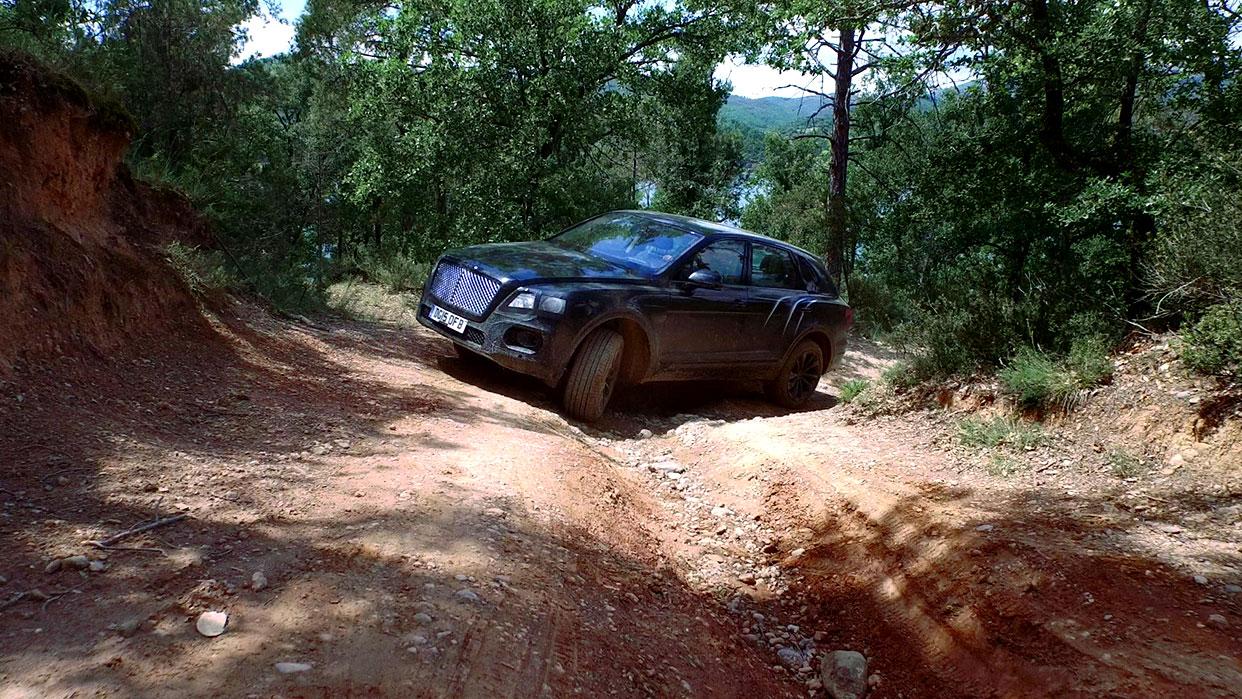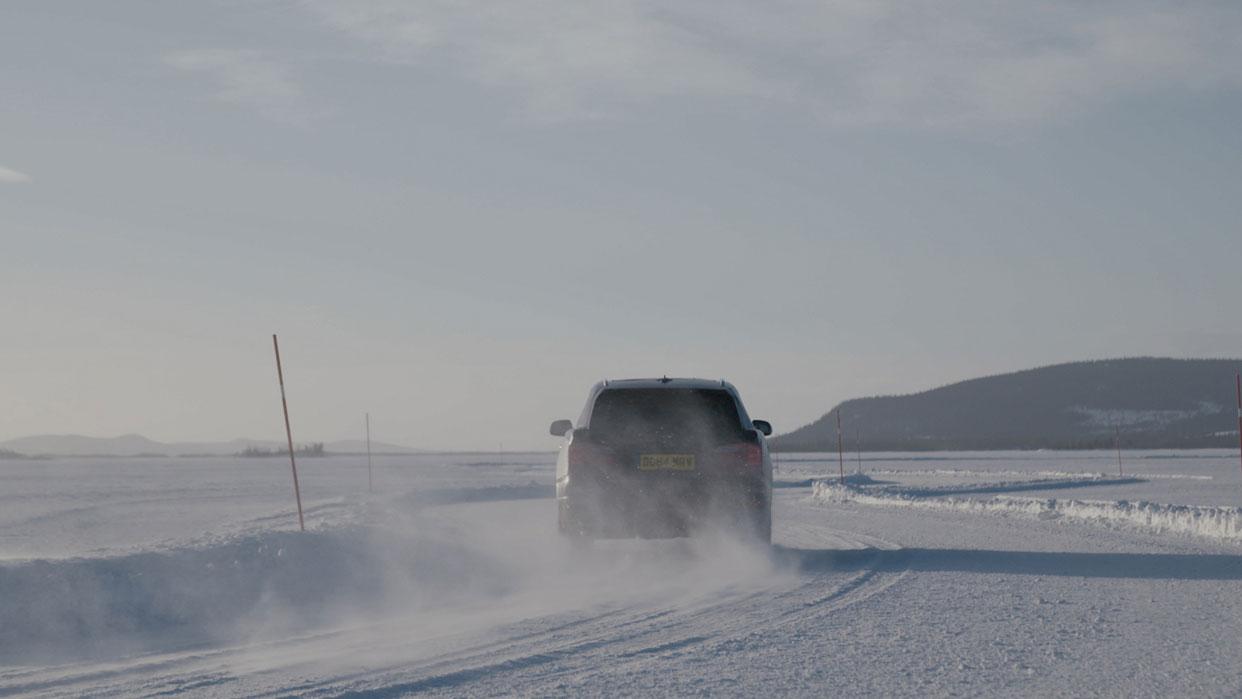It’s always a little disappointing when a new SUV can’t make it off road, but if any carmaker deserves a pass on that qualification, it’s Bentley. This British brand has no truck heritage to speak of, and while the typical Bentley customer probably appreciates all-wheel drive, they’re most likely not the climb-every-mountain type.
Yet it seems the upcoming Bentley Bentayga will have at least some off-road ability, according to a teaser video released by the carmaker. It shows the Bentayga strutting its stuff at a testing facility in northern Spain.
Already sporting a smattering of dirt, the big SUV negotiates some uneven dirt trails, even cocking a wheel during a section that requires quite a bit of articulation. Overall, the Bentley does a decent Range Rover impression.
Owners may want to think twice about trying this themselves, though, because the Bentayga could be the most expensive SUV on sale when deliveries begin in 2017. Bentley previously hinted that its first SUV could cost more than $220,000, a deliberate attempt to eclipse the prices of luxury rivals.
An all-new W12 engine is expected to motivate the Bentayga both on road and off. The 6.0-liter engine will reportedly produce 600 horsepower and 664 pound-feet of torque, and eventually replace the W12s in other Volkswagen Group models, including Bentley’s Continental GT and Flying Spur, the Audi A8, and the VW Phaeton, which is no longer sold in the U.S.
It’s also possible that the Bentayga will be offered with a plug-in hybrid powertrain. Even Bentley needs to increase fuel efficiency to meet emissions standards, and fellow VW Group brand Porsche has shown that wealthy buyers will accept plug-in hybrid luxury performance cars.
Big SUVs from Audi, BMW, Mercedes-Benz, and Volvo will all offer plug-in hybrid powertrains in the coming years, although the Bentayga should tower over them both literally, and in terms of prestige, price, and equipment.












